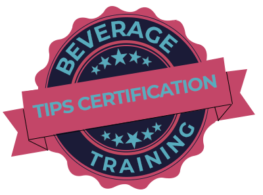In the dynamic landscape of the hospitality industry, responsible alcohol service has become an integral aspect of ensuring both safety and customer satisfaction. Kansas, known for its warm hospitality and vibrant social scenes, recognizes the significance of alcohol server training in maintaining a harmonious balance between entertainment and responsibility. The Kansas TIPS Certification program, emerges as a pivotal tool in this endeavor. It not only equips individuals with the necessary knowledge and skills to serve alcohol responsibly but also fosters a culture of awareness and accountability within the state’s establishments.
As we delve into the realm of Kansas TIPS Certification and alcohol server training, this introduction will provide a comprehensive overview of the program’s significance, its objectives, and the far-reaching impact it has on both servers and patrons alike. We will explore the core components of the certification process, highlighting the key areas of focus that empower servers to make informed decisions when handling alcohol-related situations. Moreover, we will underscore the critical role that responsible alcohol service plays in reducing alcohol-related incidents, promoting public safety, and enhancing the overall reputation of Kansas’ hospitality industry.
Kansas TIPS Certification Training Program
| Course Name | Hours | Price | Checkout |
|---|---|---|---|
| TIPS On-Premise Alcohol Server Training | 3 | $38.00 | Enroll |
| TIPS Off-Premise Alcohol Seller Training | 3 | $38.00 | Enroll |
| TIPS Off-Premise & Alcohol Delivery Training | 3 | $38.00 | Enroll |
| TIPS Concessions Alcohol Training | 3 | $38.00 | Enroll |
| TIPS Gaming Alcohol Training | 3 | $38.00 | Enroll |
| TIPS Replacement Card | $20.00 | Enroll |
Kansas TIPS Certification achieves the mere legal obligation of alcohol server training; it embodies a commitment to safeguarding the well-being of the community while enhancing the quality of service provided by establishments across the state.
Is it Mandatory to Get Enrolled in Kansas Alcohol Server Training?
In the state of Kansas, while alcohol seller and server training is not compulsory by law, it is strongly encouraged as a valuable educational tool for individuals involved in the sale and service of alcoholic beverages. Certain employers may even make it a prerequisite for employment within their establishments, the primary aim of this training is to advocate for the lawful and responsible handling of alcohol, ensuring that sales and service are conducted in accordance with established regulations and guidelines.
Why an individual should obtain a TIPS Certification?
Alcohol safety seller-server training, often accompanied by certification, is frequently a prerequisite for individuals seeking employment in roles involving the sale or service of alcohol, both at the state and business levels. In particular, the position of a bartender commonly necessitates a thorough understanding of responsible beverage service, as many employers expect candidates to demonstrate proficiency in alcohol service practices prior to hiring. Various types of establishments that offers alcohol, including bars, restaurants, hotels, nightclubs, banquet halls, liquor stores, grocery stores, convenience stores, and gas stations, may impose requirements for alcohol service training as a means of ensuring safe and responsible alcohol-related transactions within their premises.
Moreover, even if your employer does not explicitly require this training, it is highly advisable to consider it as a proactive measure. In the state of Kansas, serving alcohol to an individual below the age of 21 can result in criminal charges for servers. Concurrently, employers may incur an administrative citation, financial penalties, and the potential suspension or revocation of their liquor license.
Who can derive advantages from undergoing Kansas’ alcohol seller-server training?
Responsible alcohol service training is recommended for any employee involved in alcohol sales or service, including:
- Servers
- Waiters
- Bartenders
- Convenience store cashiers
- Liquor store employees
- Bouncers
- Hospitality employees
- Caterers
- And other alcohol workers
Whether you are a liquor store clerk or a bartender at a nightclub, understanding the rules and regulations regarding alcohol sales is part of your job and helps you in keeping customers out of harm’s way and reduces your risk of engaging in unlawful behavior.
What are the goals and objectives of the Alcohol Seller-Server Safety Training Program?
- Provide training and instruction to sellers and servers to promote responsible alcohol service.
- Recognize indicators of intoxication and employ various intervention strategies.
- Mitigate instances of driving under influence and alcohol-related fatalities.
- Prevent the sale and consumption of alcohol by minors.
- Foster safer environments within communities and venues serving alcohol.
- Educate proprietors, supervisors, and staff on liability, state statutes, and local regulations pertaining to alcohol service.
Who is the Governing Body for Kansas for Alcohol Service Regulations?
Alcohol sales are subject to stringent oversight by federal and state authorities. The Uniform Minimum Drinking Age Act of 1984 standardized the minimum legal drinking age at 21 throughout the United States, with enforcement carried out by the Alcohol and Tobacco Tax and Trade Bureau at the federal level.
However, the majority of alcohol regulations fall under the jurisdiction of individual states. State-specific alcohol laws are administered by various agencies, each with its own defined responsibilities and enforcement powers. Additionally, local ordinances may introduce further constraints governing the time, place, manner, and eligibility for alcohol sales.
For how long the certification is valid?
TIPS certification is valid for 3 years after the date of its successful completion.
What’s the Minimum Age to Serve and Consume Alcohol in Kansas?
The minimum age to serve alcohol is 18 years and 21 years to consume.
